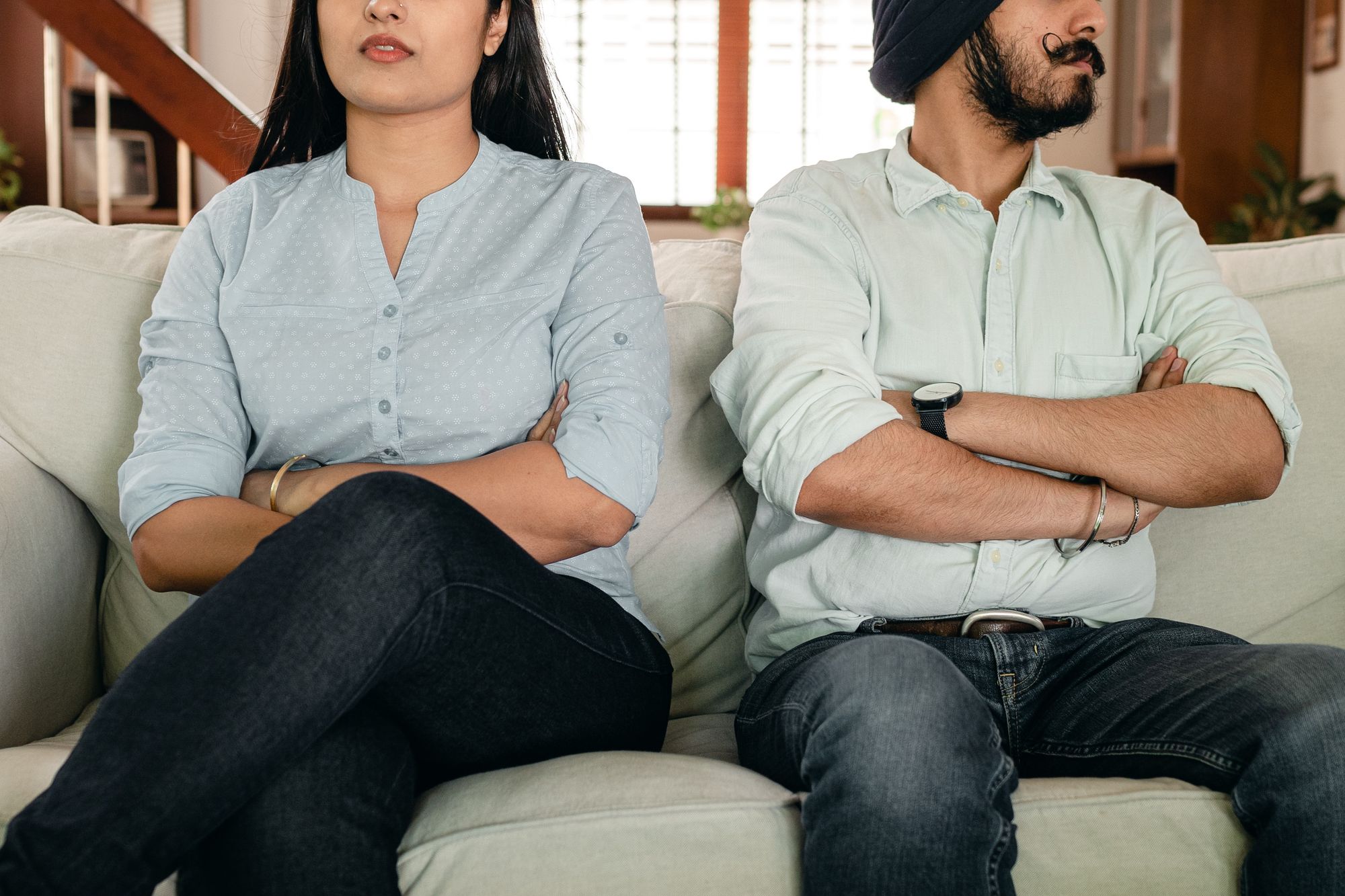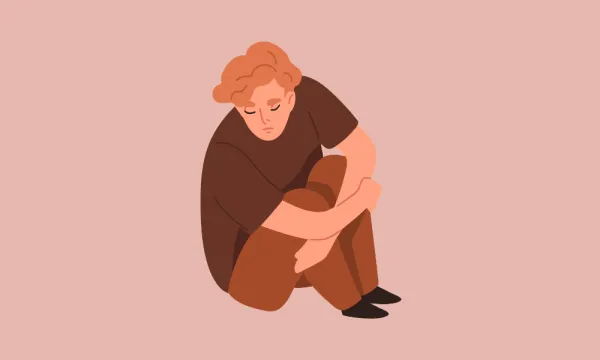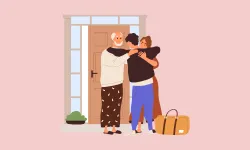Divorce brings a host of conflicting emotions to the surface — for a couple, it marks the end of what they hoped would be a lifelong relationship. For friendships, divorce represents uncertainty and tension. As a result, many friendships don't make it through divorce either.
Women lose around 40% of their friendships after a divorce. And men don't fare any better; in fact, studies show that men are even more likely to lose mutual friends after a divorce.
Having no friends can make navigating post-divorce life even harder. And without positive social interaction, it's easy for negative feelings to set in. If your spouse 'got' all the friends after your divorce, or if your close friends have simply vanished, there are a few things you should know.
Things to know
- Part of moving on and embracing post-divorce life is accepting that you'll lose some friends along the way.
- Leaning on existing support systems and creating new ones will help you keep loneliness at bay.
- Keeping an open mind and putting yourself out there are the best ways to make new connections and friends.
There's a lot more to explore to help you get your social life back on track. Let's dive into the following:
- Why Do You Lose Friends After Divorce?
- How To Maintain Your Friendships After Divorce
- What To Do When You Are Lonely After A Divorce
- How To Make New Friends After Divorce
- Let Go Of The Past
Why Do You Lose Friends After Divorce?
After letting go of your marriage and life as you know it, the last thing you expect is to have to let go of your friends. But divorce is messy and tends to bring out the worst in our friends, too. Even those that stuck with you as you fought to see positive signs during separation are nowhere in sight.

But why is that?
Uncertainty
Divorce upsets the norm and causes discomfort. Human beings are more comfortable with the familiar. And divorce presents a challenge as it changes the nature of relationships.
Friends struggle to include you in social events. Who do they include or exclude? Can they invite your ex without things getting awkward? Will you feel left out if everyone else is coupled up?
Instead of figuring out how to remain friends with both of you, some friends distance themselves altogether. Eventually, some friends pick a side — it's less stressful than trying to deal with all the awkwardness.
Fear
A study revealed that people were 75% more likely to get divorced following a friend's divorce. This phenomenon is called social contagion and describes the spread of information, behaviors, and attitudes through friends, families, and social networks.
Although studies of this nature are limited, they do make one thing clear: the end of a loved one's marriage often forces people to examine their relationships. And this is a reality that some married people don't want to face.
Disapproval
Divorce is often seen as a sign of failure or, worse yet, an act of selfishness or disregard for one's family. If your friends view divorce in a negative light, they may lack the empathy or understanding to comprehend that ending your marriage was for the best.
So even if you escaped domestic violence or a toxic situation, they might be of the opinion that you didn’t try hard enough to save your marriage — and distance themselves from you.
Insecurity

Friends who feel insecure about their marriages may avoid you out of fear of being "influenced" into divorce as well. Your divorce might force them to examine parts of themselves or their relationships that they're not willing to confront yet. In fact, seeing you fearlessly pursuing happiness might be triggering.
Incompatibility
If your quality time consisted of bonding over your unhappy marriages, you don’t have much in common anymore. In fact, your friends might view your divorce as the ultimate betrayal.
There's also the fact that divorce is life-changing and has probably forced you to adjust your outlook on life. Your identity and self-concept have been challenged, and you're trying to figure out who you are and what’s important to you.
As you go through this transformation, you and your friends might drift apart. They may not understand your new way of life, and you may no longer feel like you share similar interests.
How To Maintain Your Friendships After Divorce
Remember, you can’t keep friends who don’t want to be kept. You can, however, try to make the transition as smooth as possible for everyone involved.

Be upfront with them
Friends often don't know how to handle the change. They may worry about awkwardness and picking sides. To ease their concerns, assure them that you value their friendship and that you don’t expect them to pick sides.
Let them know that you’d still like to be included in gatherings, events, and dinners. If you don’t leave them guessing about what you’re comfortable with, they are more likely to include you.
Accept that things will be different
As you change, your friendships will change too. Expecting them to stay the same will only make the transition harder. Accept that your social circle might shrink in response to your new identity as a single woman or man or a single mom or dad.
This isn't necessarily a bad thing; in fact, you might find that your close friendships might change for the better now that you have more time for them. So, while you may feel the loss of mutual friends, lean into your individual friendships.
Avoid being clingy
Although true friends tend to step up and play unofficial therapists when we’re struggling, it’s important to respect their space and boundaries. Being clingy and expecting your friends to be there for you whenever you want to vent is the fastest way to overwhelm them and put a strain on your friendships.
Be mindful that they have their own lives and problems and that you need to be there for them as well. So, if you initiated plans the last time, wait for them to initiate plans next time. This keeps things balanced and ensures that you don't overwhelm your friends.
Unless your friends have gone through a divorce themselves, they may not know how to support you. Aside from that, some of your friends may not be comfortable talking about your divorce or your new single life. And if you really value their friendship, you'll need to respect this. Consider seeing a therapist or joining a support group to help you navigate post-divorce life instead.
Don’t project onto your friends
When you’re still healing and processing your emotions, it’s easy to become the jaded friend who gives 'negative' relationship advice. With this in mind, it's important to avoid projecting your own experiences onto your friends. Remember, every relationship is unique, and what may have worked for you (divorce) may not necessarily be what's best for them.
What To Do When You Are Lonely After A Divorce
Loneliness is part of the top three most troublesome issues to deal with during and after a divorce.

Here's what you can do to keep loneliness at bay:
Join a support group
Consider joining a local support group for divorcees, as it is a judgment-free space to express your emotions. Simply being around people who understand exactly what you’re going through can help you combat feelings of loneliness.
Other divorcees can also be a source of mutual support and comfort. Together, you can adjust to post-divorce life and have access to actionable advice about how to deal with grief and loneliness.
Move closer to family members
If it's an option, you may want to consider temporarily moving back in with parents after divorce. Not only will this give you access to a strong support system, but it may also ease your financial strain until you get back on your feet again. If you have children, they'll also benefit from the extra support.
Don't dwell on negative feelings
Following a divorce, feelings of guilt and shame can be incredibly isolating. It's important not to withdraw from those who care about you or subject yourself to social isolation.
Blaming yourself for the breakdown of your marriage is counterproductive and will only keep you stuck in a negative emotional state. Instead, work on forgiving yourself and processing your emotions in a healthy way. You might find activities like journaling extremely helpful for consolidating your thoughts and feelings.
During this time, self-care is critical. Keeping your body and mind healthy is a major part of the healing process. Allowing yourself to fall into a state of chronic stress will leave you feeling miserable and make you more susceptible to physical and mental health issues.
Lastly, self-care also means carving out time every day to immerse yourself in something you really enjoy. Whether it's reading a book or painting, sticking to it will lift your spirits and give you something to look forward to every day.
How To Make New Friends After Divorce
If your social circle is dead and you’ve lost all your social connections, try to see it as a positive new start. After all, you want true friends, not friends who abandon you when your circumstances change or when things get hard.
The prospect of putting yourself out there might be scary, but if you’re willing to try, you might make a few meaningful connections along the way.

Follow your interests
When it comes to getting out there, let your interests guide you. Nothing will boost your mood more than doing the things you love. You’re more likely to feel confident when you’re doing something you enjoy. And when you're in that positive headspace, sparking up a conversation with a stranger won’t seem so daunting.
Fire up your socials
Social media can be a great way to meet new people and keep track of exciting local events. With so many social networks to choose from, it might be overwhelming at first. So, start with something familiar and see how it goes. Local Facebook groups are a great place to start. Again, let your interests guide you.
You might find it beneficial to join Facebook groups for divorcees or single parents. While this won't transform you into a social butterfly overnight, try to keep an open mind; you might make some interesting online friends.
Volunteer
Sometimes, helping those who are also going through a rough time can be a profound source of emotional healing. So, dig deep, find a cause that's close to your heart and pour yourself into it. Volunteering will make you feel better and connect you with like-minded people.
Let go of the past and step boldly into the future.
Make plans
Nurture new connections by creating more opportunities to connect. Don't be afraid to invite someone from your support group out for coffee over the weekend or ask your new gym buddy to join you for a hike.
Rejection and disappointment will certainly be part of the process, but don't let them discourage you. Keep at it, and eventually, you'll make new friends.
Accept invitations
As you meet new people and grow your list of contacts, you're probably going to be on the receiving end of a lot of invitations. It's going to feel strange — scary even, but don't turn them down. Try to keep an open mind and a positive mindset; these are perfect opportunities to mingle and meet more people, after all.
Let Go Of The Past
When you're making progress and adjusting to your new life, the last thing you want is to go back to a dark place. That said, stay off your ex's social media, especially if they 'got' all the friends after your divorce.
Watching their lives carry on without you may trigger strong feelings of rejection and put you at risk of depression. Instead, let go of the past and step boldly into the future.









